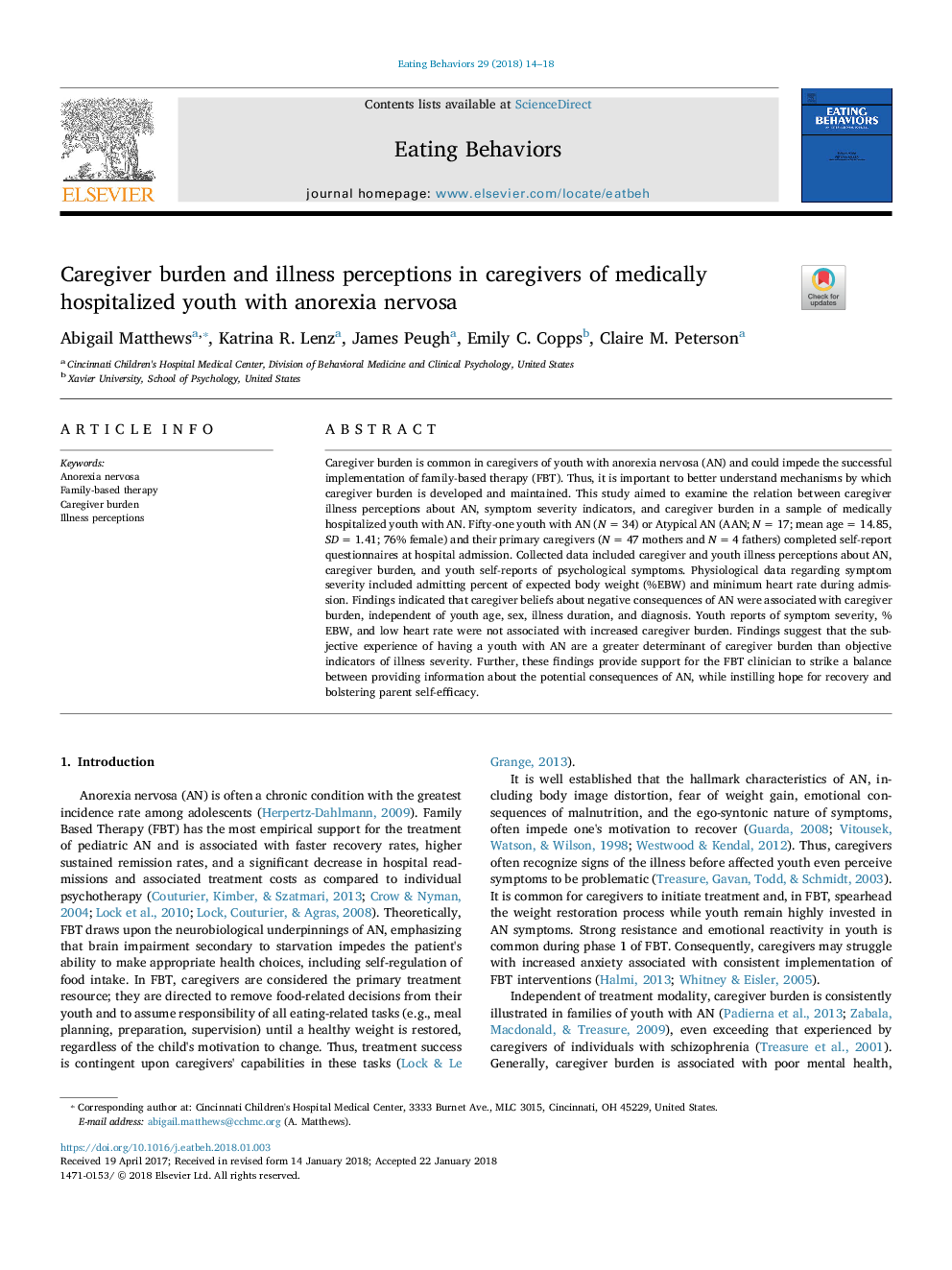ترجمه فارسی عنوان مقاله
بارور مراقب و ادراک بیماری در مراقبان جوانان بستری درمانی با ناراحتی ناشی از انسداد
عنوان انگلیسی
Caregiver burden and illness perceptions in caregivers of medically hospitalized youth with anorexia nervosa
| کد مقاله | سال انتشار | تعداد صفحات مقاله انگلیسی |
|---|---|---|
| 122391 | 2018 | 5 صفحه PDF |
منبع

Publisher : Elsevier - Science Direct (الزویر - ساینس دایرکت)
Journal : Eating Behaviors, Volume 29, April 2018, Pages 14-18
ترجمه کلمات کلیدی
بی اشتهایی عصبی، درمان مبتنی بر خانواده، بار مراقب درک بیماریها،
کلمات کلیدی انگلیسی
Anorexia nervosa; Family-based therapy; Caregiver burden; Illness perceptions;

